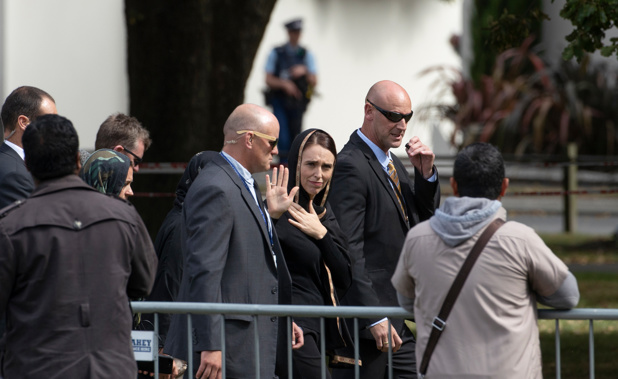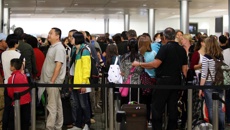
I’ve been surprised by the reaction to Prime Minister Christopher Luxon’s meeting with former PM Jacinda Ardern. Social media has been alive with criticism of Luxon’s decision to meet to discuss the future of one of her projects.
For me, irrespective of whether you continue to support the Christchurch Call or not, meeting with the person who put it in place is, at the very least, a courtesy.
But it would seem that the Christchurch Call is no longer relevant, if it ever was. While the initiative has probably drawn some attention to terrorist behaviour and, in particular, the production and live streaming of video coverage of such acts, there is little public evidence to suggest that it has played a significant role in the prevention of such behaviour.
The Hamas-led massacre of Israelis on October 7 bears testament to the ineffectiveness of the “call”. That attack occurred less than five years after Christchurch’s terror attacks, and yet video material was circulated widely. Many of the attackers wore body cameras, deliberately recording and distributing their record of the atrocities as they committed them.
In reality, the only people who can shut down the distribution of such material are those in control of the big technology companies. Think Google, Facebook, Instagram and X (formerly Twitter).
And although a lobbying initiative, fronted by a once popular political figure, can bring short-term pressure onto those people, the reality is that those tech companies may or may not choose to do anything about it.
We have to remember that the big tech companies rely on eyeballs for their very survival. And in a world that is increasingly desensitised by various acts of violence and viciousness, degradation and death, those eyeballs will continue to be attracted to even the most abhorrent material.
I have no doubt that, notwithstanding the naivety that accompanied it, the Christchurch Call was promoted with the best intentions at heart. However, against the reigning backdrop of wokeism, it appears as another lame attempt to contain freedoms of speech and expression.
So, it’s interesting that the Christchurch Call is back in the headlines when one of the chief architects of curbed freedoms, cancel culture and wokeism is itself wrapping up its annual talkfest, and this time, doing so with some notable opposition.
The World Economic Forum (WEF) has just concluded its meeting at Davos for another year, where it has no doubt continued its quest for a single world order controlled by the financial, political and bureaucratic elites that make up its membership.
But this year’s edition was notable, not for continued calls for the great reset of capitalism, where every country in the world must participate to restructure all aspects of our economies and communities in a manner designed by the WEF, but rather for the global praise that accompanied some of its newer speakers; people who spoke out aggressively against such idealistic reforms.

In particular, newly inaugurated Argentina President Javier Milei claimed the headlines with his enlightened speech against the ideals of the meeting organisers.
He talked about the importance of free trade in economic wellbeing and how essential it was to enable an end to hunger and poverty. He continued that the introduction of socialism in the 1920s had wrecked Argentina’s once “world-leading power”.
And he said that “socialism is always and everywhere an impoverishing phenomenon that has failed in all countries where it’s been tried”.
Meanwhile, in Canada, which in recent years has become a poster child for renewed woke socialism under leader Justin Trudeau, conservative opposition leader Pierre Poilievre has come out punching this week, saying openly that if elected, he will ban any involvement of Canada, it’s MPs, his ministers and staff in the activities of the World Economic Forum.
This all comes after the news, over our summer break, of the resignation of the President of Harvard University. Claudine Gay had been regarded as a key spokesperson in the escalating ideological battle over higher education in America. Her departure has been called “a crushing loss to DEI [diversity, equity and inclusion], wokeism, antisemitism and university elitism”.
And so at the risk of getting too excited too early, those of us with a more conservative political stance, who value freedoms of choice, trade, expression and press, can perhaps see the beginning of the end of the woke ideologies that have dominated the global political, economic and educational landscape over recent years.
One of the challenges in a free world is that we have to take the good with the bad. As unfortunate as it may seem, if we want to maintain the freedom to express ourselves, freedom of movement, and a media free to present what it sees rather than what it thinks it should say, there will be times when the bad guys will get their point heard too. But it’s important to remember that there is more good in a free world than bad.
Accordingly, at a time when ideology and wokeness is finally being challenged, it seems that the Christchurch Call, while well intentioned, may well be past its expiry date.
Bruce Cotterill is a company director and adviser to business leaders. He is the author of the book, The Best Leaders Don't Shout, a regular NZ Herald columnist and host of the NZME’s podcast, Leaders Getting Coffee. www.brucecotterill.com
Take your Radio, Podcasts and Music with you









